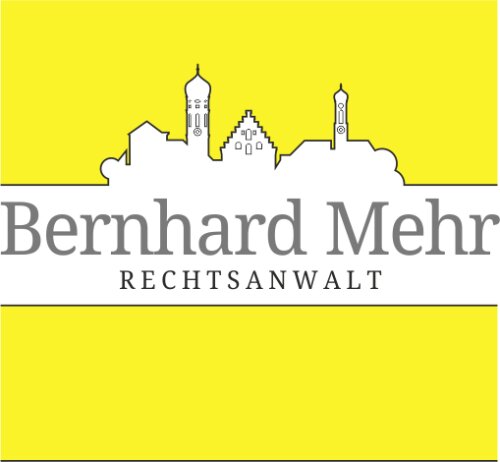Best Media and Entertainment Lawyers in Germany
Share your needs with us, get contacted by law firms.
Free. Takes 2 min.
Or refine your search by selecting a city:
List of the best lawyers in Germany
About Media and Entertainment Law in Germany
Media and Entertainment Law in Germany encompasses various aspects of law that regulate the production, distribution, and consumption of media and entertainment content. This field is continuously evolving with the advancements in technology and shifts in consumer behavior. It covers copyright law, broadcasting regulations, digital media, film and television production, sports law, advertising, and intellectual property rights. Given Germany's strong cultural industries and its role as a key player in the European market, understanding and navigating the legal frameworks in this sector is crucial for professionals, businesses, and consumers alike.
Why You May Need a Lawyer
Navigating the Media and Entertainment sectors often involves complex legal issues. Here are some common situations where legal assistance might be necessary:
- Contract negotiations and drafting for artists, producers, and broadcasters.
- Copyright infringements or disputes over intellectual property rights.
- Regulatory compliance concerning media content distribution.
- Dispute resolution for media and entertainment contracts.
- Guidance on advertising laws and compliance with broadcasting restrictions.
- Legal issues arising from digital distribution channels and new media.
- Talent representation and management agreements.
- Privacy and defamation issues in media productions.
Local Laws Overview
In Germany, Media and Entertainment are regulated by a variety of laws and agencies. Key aspects include:
- Cultural Protection Laws: Germany has strict regulations to protect cultural heritage, affecting media production and distribution.
- Copyright and Intellectual Property: Based on the German Copyright Act, these laws protect creators and regulate the use of their works.
- Broadcasting Regulations: These include the Interstate Broadcasting Agreement (RStV) and ensure fair and transparent media content distribution.
- Data Protection and Privacy: In alignment with GDPR, strict laws govern the handling of personal data in media.
- Competition Laws: The German Act against Restraints of Competition (GWB) aims at ensuring fair competition in the market.
- Film and Television: Specific rules govern the production, distribution, and funding of films and TV shows in Germany.
Frequently Asked Questions
What is the role of the German Press Council?
The German Press Council is a self-regulatory body that establishes guidelines for journalistic practice to ensure fair reporting and ethical standards within the media.
How are copyright issues handled in the media sector?
Copyright issues are addressed under the German Copyright Act, which provides comprehensive protection for creators and sets guidelines for the use and distribution of creative works.
What legal measures exist to protect intellectual property in Germany?
Intellectual property is protected under the German Patent and Trademark Office (DPMA) and the German Copyright Act, with provisions for enforcing rights and resolving disputes.
How does one resolve defamation disputes in media?
Defamation disputes can be resolved through mediation, litigation, or regulatory bodies depending on the nature of the case and the mediums involved.
What are the rules for advertising in the German media?
Advertising is regulated to prevent misleading practices and to protect consumer rights, involving specific guidelines under the Unfair Competition Act and broadcasting stipulations.
What is the impact of GDPR on media companies in Germany?
GDPR impacts how media companies handle personal data, requiring strict compliance with data protection regulations and safeguarding user privacy.
Are foreign media companies subject to German media laws?
Yes, foreign media companies distributing content in Germany must comply with local laws, including licensing, content regulation, and advertising standards.
How are artists' rights protected in Germany?
Artists' rights are protected through contracts, royalties, and copyright laws that ensure fair compensation and attribution for their work.
What is required for legal distribution of films in Germany?
Distributing films legally requires compliance with classification, censorship, copyright, and licensing regulations in accordance with German and European law.
How can one protect digital content in the entertainment industry?
Protecting digital content involves copyright enforcement, digital rights management systems, and adherence to legal frameworks governing digital media use.
Additional Resources
For further assistance and information, consider reaching out to the following resources:
- German Patent and Trademark Office (DPMA): for intellectual property rights and registration queries.
- German Press Council: for standards and ethics in journalism.
- Federal Commissioner for Data Protection and Freedom of Information (BfDI): for data privacy issues.
- Medienanstalten: regional media authorities for broadcasting regulation guidance.
- Collective Management Organizations (GMOs): such as GEMA for music rights and royalties.
Next Steps
If you need legal assistance in Media and Entertainment, consider these steps:
- Identify Your Needs: Clearly define the legal issue you are experiencing and the specific assistance you require.
- Research Legal Professionals: Look for experienced lawyers or firms that specialize in Media and Entertainment Law in Germany.
- Consult a Lawyer: Schedule an initial consultation to discuss your legal concerns and potential strategies.
- Understand Costs: Request a detailed fee structure and ensure it aligns with your budget.
- Proceed with Legal Action: Based on the advice, engage in negotiations, mediation, or litigation as required.
By following these steps, you can ensure that you receive the appropriate legal guidance to navigate the complexities of the Media and Entertainment landscape in Germany.
Lawzana helps you find the best lawyers and law firms in Germany through a curated and pre-screened list of qualified legal professionals. Our platform offers rankings and detailed profiles of attorneys and law firms, allowing you to compare based on practice areas, including Media and Entertainment, experience, and client feedback.
Each profile includes a description of the firm's areas of practice, client reviews, team members and partners, year of establishment, spoken languages, office locations, contact information, social media presence, and any published articles or resources. Most firms on our platform speak English and are experienced in both local and international legal matters.
Get a quote from top-rated law firms in Germany — quickly, securely, and without unnecessary hassle.
Disclaimer:
The information provided on this page is for general informational purposes only and does not constitute legal advice. While we strive to ensure the accuracy and relevance of the content, legal information may change over time, and interpretations of the law can vary. You should always consult with a qualified legal professional for advice specific to your situation.
We disclaim all liability for actions taken or not taken based on the content of this page. If you believe any information is incorrect or outdated, please contact us, and we will review and update it where appropriate.
Browse media and entertainment law firms by city in Germany
Refine your search by selecting a city.















